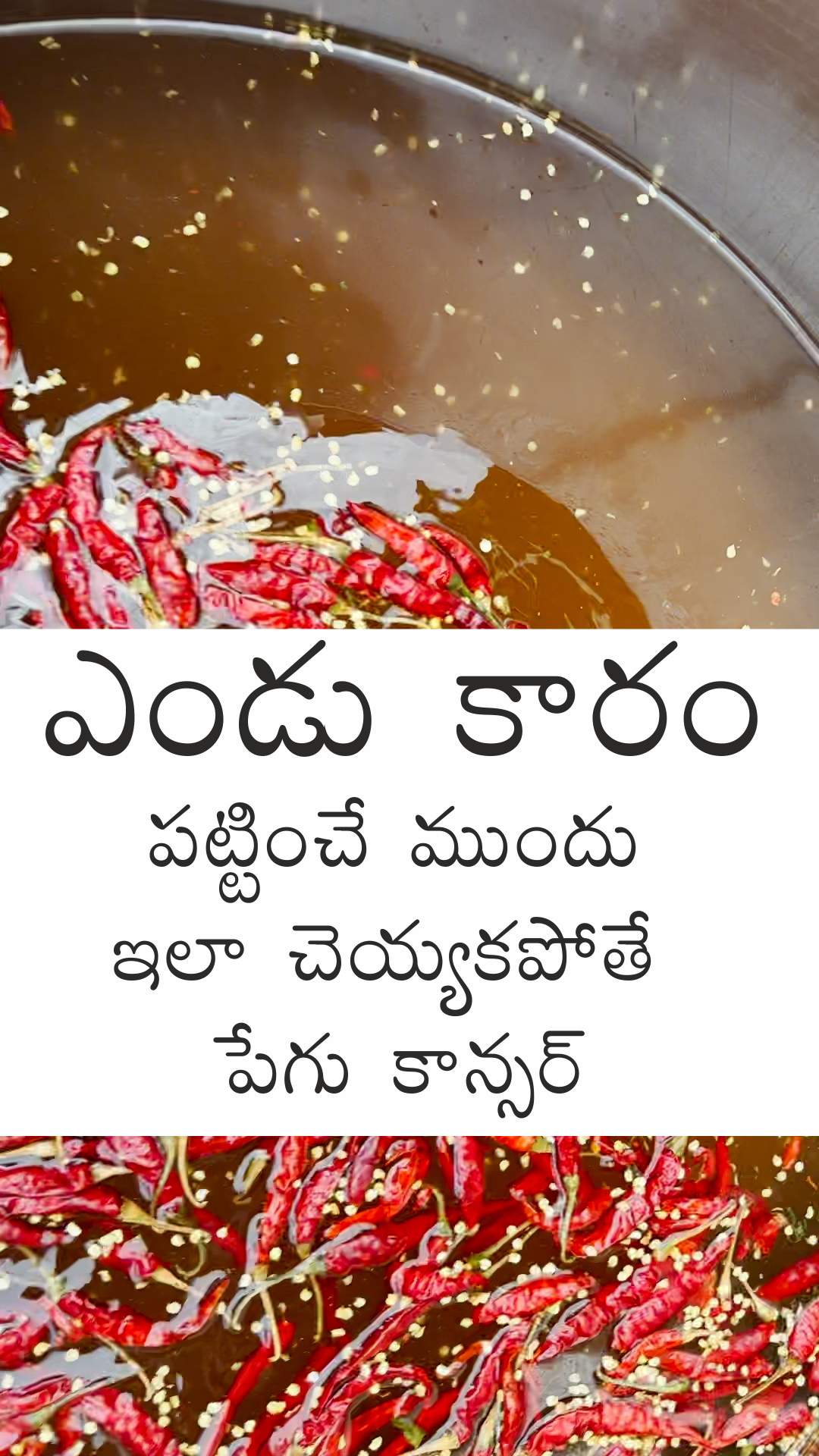
Unveiling the Secrets of Red Chillies with Dr. Yeshamalla Krishna
Share
The Art of Healthy Living: Unveiling the Secrets of Red Chillies with Dr. Yeshamalla Krishna
Introduction:
In the pursuit of a healthy and nourished life, individuals are increasingly turning to age-old practices rooted in Ayurveda. Renowned for his expertise in nutrition and Ayurveda, Dr. Yeshamalla Krishna, associated with the esteemed Happy Herbals Company, shares valuable insights into the process of drying red chillies. According to him, the traditional method involves soaking these fiery pods in salt water, washing them, and then drying them again before use in cooking. This meticulous approach, as explained by Dr. Krishna, is essential to mitigate potential health risks associated with residues of insecticides used during the growth cycle of chili plants.
Residues of Insecticides and Their Health Implications:
Dr. Krishna sheds light on the extensive use of insecticides in modern agriculture, particularly in the cultivation of red chillies. These chemicals are applied multiple times, ranging from the flowering stage to the harvesting of pods. The accumulation of these residues, Dr. Krishna warns, can pose serious health risks to consumers if not addressed properly.
-
Gas Trouble:
The residues of insecticides on red chillies can contribute to gastrointestinal issues, leading to gas trouble. Dr. Krishna emphasizes that the consumption of these residues may disrupt the natural digestive processes, causing discomfort and bloating.
-
Ulcers:
Prolonged exposure to insecticide residues in red chillies may also contribute to the development of ulcers. Dr. Krishna highlights the corrosive nature of certain chemicals, which, when ingested regularly, can irritate the lining of the stomach and contribute to ulcer formation.
-
Intestinal Cancer:
Perhaps the most alarming consequence is the potential link between insecticide residues and intestinal cancer. Dr. Krishna points out that some chemicals used in conventional farming have been associated with an increased risk of cancer. Regular consumption of red chillies without proper treatment may expose individuals to this risk.
-
Autoimmune Diseases:
Dr. Krishna suggests a possible connection between the residues of insecticides and the development of autoimmune diseases. The body's immune system, when exposed to these chemicals, may react in ways that lead to the onset or exacerbation of autoimmune conditions.
Traditional Remedial Method:
To address these concerns, Dr. Krishna advocates for a time-tested method of treating red chillies before incorporating them into our culinary endeavors. The process involves soaking the chillies in salt water, followed by thorough washing and a subsequent round of drying. This method, according to Dr. Krishna, is effective in reducing or eliminating the residues of insecticides, ensuring a safer and healthier consumption experience.
-
Soaking in Salt Water:
By soaking red chillies in salt water, Dr. Krishna explains, any residual insecticides present on the surface can be broken down. Salt, with its natural cleansing properties, serves as an effective agent in this process.
-
Thorough Washing:
After the initial soaking, it is crucial to wash the chillies thoroughly. This step helps to remove any remaining traces of both salt and dissolved insecticide residues, leaving the chillies clean and safe for consumption.
-
Additional Drying:
The final step involves drying the chillies once again. This ensures that any residual moisture is eliminated, preventing the growth of molds and bacteria. It also allows for the complete removal of any remaining traces of insecticides.
Conclusion:
Dr. Yeshamalla Krishna's health tips, particularly regarding the treatment of red chillies, offer valuable insights into the potential health hazards associated with conventional farming practices. By embracing traditional methods of processing red chillies, individuals can safeguard themselves against the risks of gas trouble, ulcers, intestinal cancer, and autoimmune diseases. In the pursuit of a holistic and health-conscious lifestyle, incorporating such practices into our culinary routines is a step towards nurturing not just our bodies but our overall well-being.
